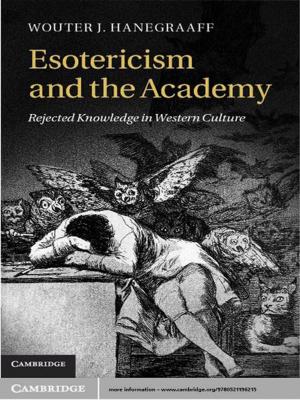The Evolution of Anisogamy
A Fundamental Phenomenon Underlying Sexual Selection
Nonfiction, Science & Nature, Science, Biological Sciences, Biology, Evolution| Author: | ISBN: | 9781139062633 | |
| Publisher: | Cambridge University Press | Publication: | April 14, 2011 |
| Imprint: | Cambridge University Press | Language: | English |
| Author: | |
| ISBN: | 9781139062633 |
| Publisher: | Cambridge University Press |
| Publication: | April 14, 2011 |
| Imprint: | Cambridge University Press |
| Language: | English |
Darwin identified the existence of separate male and female gametes as one of the central mysteries of evolutionary biology. 150 years later, the question of why male gametes exist remains an intriguing puzzle. In this, the first book solely devoted to the evolution of anisogamy, top theorists in the field explore why gamete dimorphism characterizes nearly all plants and animals. Did separate male and female gametes evolve as a result of competition, or does anisogamy instead represent selection for cooperation? If disruptive selection drove the evolution of anisogamy, with male gametes focused on search and fusion, and female gametes provisioning the new zygote, why do some algal species continue to produce gametes of a single size? Does sperm limitation, or escape from infection, better explain the need for extremely small, highly mobile sperm? Written by leaders in the field, this volume offers an authoritative and cutting-edge overview of evolutionary theory.
Darwin identified the existence of separate male and female gametes as one of the central mysteries of evolutionary biology. 150 years later, the question of why male gametes exist remains an intriguing puzzle. In this, the first book solely devoted to the evolution of anisogamy, top theorists in the field explore why gamete dimorphism characterizes nearly all plants and animals. Did separate male and female gametes evolve as a result of competition, or does anisogamy instead represent selection for cooperation? If disruptive selection drove the evolution of anisogamy, with male gametes focused on search and fusion, and female gametes provisioning the new zygote, why do some algal species continue to produce gametes of a single size? Does sperm limitation, or escape from infection, better explain the need for extremely small, highly mobile sperm? Written by leaders in the field, this volume offers an authoritative and cutting-edge overview of evolutionary theory.















